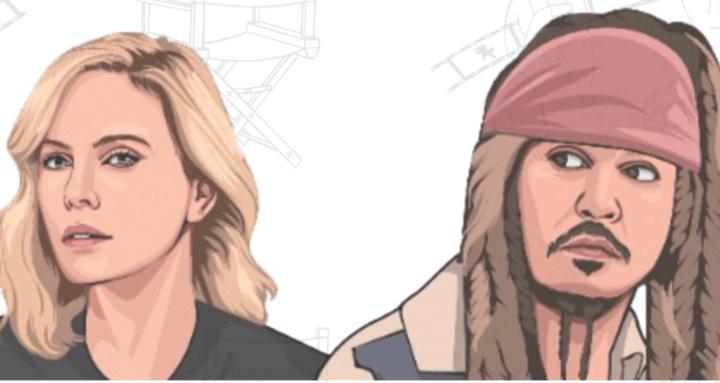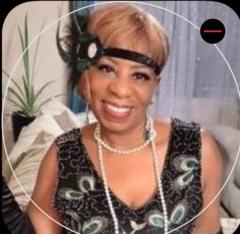Mar 10 • General discussion
Want to Master the Art of Cold Emails? Here’s the Ultimate Guide for Actors
Hey acting peeps,
For those who didn't attend the zoom session last night we had Christine Solomon with us who's experience in the acting world is immense.
She kindly allowed me to share with you about best way to send a cold emails and why most actors get them wrong, so here goes:
You know you should be reaching out to casting directors, agents, producers, and industry decision-makers. But every time you sit down to write that email, doubt creeps in. What do I even say? Will they think I’m annoying? What if they don’t respond?
Here’s the hard truth: cold emails work—when done correctly. Many actors miss out on opportunities simply because they don’t know how to craft a professional, compelling, and confident message.
The good news? Industry pros actually want to discover new talent, sign actors, and fill roles. Your job is to show them—quickly and effectively—why they should pay attention to you.
Today, I’m breaking down the exact structure of a winning cold email, including examples that reflect how top-tier actors communicate—confident, direct, and positioning themselves as valuable assets.
The Anatomy of a High-Impact Cold Email
Every strong cold email follows this structure:
1. Subject Line: The Make-or-Break Moment
Your subject line determines whether your email gets opened or ignored. It must be direct, intriguing, and professional.
❌ Bad subject lines:
- “Hi, I’m an actor looking for representation”
- “Seeking opportunities in film/TV”
- “Hope you’re doing well”
✅ Winning subject lines:
- “Talented Actor with Recent Lead Role in [Notable Project]”
- “Rising Actor in [Genre/Market] | Interested in Meeting”
- “Re: Upcoming Project Inquiry – [Your Name]”
When to send? Wednesdays. Industry professionals are most likely to check and respond mid-week.
2. Opening Line: Hook Them Immediately
Skip the small talk. No “I hope you’re doing well”—just get to the point.
✅ Example Opening for an Agent:
“I’m reaching out because I’m looking to align with strong representation that understands my career trajectory. I recently wrapped [Project Name] and am now focused on [specific career direction].”
✅ Example Opening for a Casting Director:
“I wanted to introduce myself—I specialize in [genre/character type] and recently worked on [Project], which shares a similar tone and depth as your current projects.”
✅ Example Opening for a Director or Producer:
“I came across [Project Name] and was immediately drawn to its creative direction. My background in [specific skill or genre] allows me to bring layered, nuanced performances to stories like this.”
- Confidence is key.
- Reference a relevant project to create instant credibility.
- Position yourself as a peer, not a fan.
3. The Body: Showcase Your Value in 3-4 Sentences
Keep it tight and powerful. Instead of listing your entire resume, highlight:
- Your most recent achievement, a recognizable project. If not, mention a short or independent film—did it win any awards or get selected at a festival? Or highlight a play, TV series, or national commercial. Even if it’s a small part, emphasize who was involved. For example: “I worked on [Project Name] starring [Lead Actor’s Name/Director/Production Company], the star of [Notable Film or Show].”) It’s all about how you frame and word your information to make the strongest impact.
- Additionally, if you have a voiceover gig, an award you won, a play you’re currently in that you can set aside tickets for, a recurring role, or a recent interview, be sure to highlight it.
- If you’re just starting out, mention callbacks and small gigs you’ve had. But again, make sure you don’t downplay them—always frame your experience in a strong, confident way.
- If your project is currently playing anywhere, include where people can watch it (streaming, TV, in theaters, etc.).
- Your unique strengths and how they fit their work.
- A direct connection to their project, company, or creative vision. (If you’ve been referred by someone they know, be sure to mention it here. If not, find a natural point of connection. For example: “I grew up in Ottawa and graduated from Carleton University and found out we were fellow alumni.“ See the connection?)
- Example Body (For an Agent):
- Example Body (For a Casting Director):
- Example Body (For a Director/Producer):
4. The Call to Action: Make It Easy for Them to Respond
Be direct. Make it easy for them to take action.
❌ Weak CTA:
- “I’d love to send over my materials for your review—let me know if you’d be open to that.”
✅ Strong CTA:
- “Here’s a direct link to my recent work: [Insert Link]. Would love to connect.”
- “If you’re open to it, I’d love to submit a quick self-tape for consideration. Let me know if that’s of interest.”
- “Would love to set up a short call to discuss. Let me know a time that works.”
This exact approach is how I connected with the casting director of Marvel’s Moon Knight when she was casting voiceover and ADR actors. A friend told me about the opportunity and the casting director, so I sent her a direct, confident email. She responded by giving me her personal cell number to call her. Fast forward—I booked the job and was asked to do an additional scene.
Pro Tip: Never attach files. Always send a link. Attachments can trigger spam filters, get lost in inboxes, and create security concerns.
Common Mistakes to Avoid
Even the strongest cold email can be ruined by small missteps. To keep your email professional and effective, avoid these common mistakes:
- Talking about roles you see yourself doing or comparing yourself to other actors. Instead, let your past work and skills demonstrate your strengths.
- Highlighting your desperation or how hard you’ll work. Casting directors and agents want confidence, not neediness.
- Mentioning any religious or political affiliations.
And lastly, always proofread. A typo or poorly structured email can make you look unprofessional and hurt your chances of getting a response.
5. The Follow-Up: Because One Email Isn’t Enough
Most actors don’t get responses because they don’t follow up. Industry professionals are busy—a second email increases your chances significantly.
🕒 When to follow up?
- 1-2 weeks later. Make sure it’s on a Wednesday. Keep it brief.
- Offer something new. (For example, a link to a self-tape or reel update.)
✅ Example Follow-Up:
“Hi [Name], I wanted to follow up in case my last email got buried. I’d love to connect and explore how I can contribute to upcoming projects. Here’s a quick look at my recent work: [Insert Link]. Looking forward to your thoughts!”
Cold Email Templates: How Top-Tier Actors Do It
Template #1: Reaching Out to an Agent
📩 Subject: Talented Actor with Recent Lead Role in [Project]
Hi [Agent’s Name],
I’m looking to align with strong representation that understands my trajectory. I recently wrapped [Project Name] and am now focused on [specific career direction].
My work in [Project] gained recognition at [Festival/Streaming Platform], and with my background in [specific skill], I bring a distinct presence to every role. Here’s a direct link to my materials: [Insert Link].
Would love to connect—let me know a time that works.
Best,
[Your Name]
[Your Website/Links]
Template #2: Reaching Out to a Casting Director
📩 Subject: Introducing Actor [Your Name] – Recent Work in [Project]
Hi [Casting Director’s Name],
I wanted to introduce myself—I specialize in [genre/character type] and recently worked on [Project], which shares a similar tone and depth as your current projects.
I thrive in roles that demand emotional depth and complexity, and having recently led [Project], I know how to contribute to this level of storytelling. Here’s my latest work: [Insert Link].
Would love to be considered for upcoming projects—let me know if this is something worth exploring.
Best,
[Your Name]
[Your Website/Links]
Template #3: Reaching Out to a Director or Producer
📩 Subject: Re: Upcoming Project Inquiry – [Your Name]
Hi [Director/Producer’s Name],
I came across [Project Name] in pre-production and was impressed by the caliber of talent you work with. I specialize in [specific ability] and know how to bring [relevant skill/energy] to a project like this.
Here’s a quick look at my recent work: [Insert Link].
Let me know if this is something worth exploring—I’d love to connect.
Best,
[Your Name]
[Your Website/Links]
Template #4: Cold Email Example for Beginners
📩Subject: Emerging Actor with Training in [Genre/Skill] | Excited to Connect
Hi [Recipient’s Name],
I came across [Project Name/Your Work] and was immediately drawn to [something specific about their casting, direction, or creative choices]. I specialize in [genre/skill] and have been training extensively with [acting coach, studio, or notable program]. While I’m early in my career, I’ve worked on [mention a short film, theater production, student film, or relevant training project] that allowed me to develop [specific skill or strength].
What excites me most about [their work or company] is the emphasis on [strong storytelling, complex characters, innovation in casting, etc.]. I’d love to connect and explore how I can contribute to upcoming projects that align with my strengths.
Here’s a link to my materials, including my latest headshots and recent work: [Insert Link].
Looking forward to hearing your thoughts. Let me know if this is something worth exploring.
Best,
[Your Name]
[Your Website/ Links]
Why This Works for Beginners (Without Sounding Like One):
- Strong, confident subject line that immediately grabs attention
- Positions them as an emerging talent rather than an inexperienced actor
- Focuses on training, skills, and strengths instead of listing credits
- Uses direct, high-level language that reflects how top-tier actors communicate
- Creates a natural connection with the recipient’s work
- Provides a clear CTA without sounding unsure
Final Takeaway: Confidence Is Key
Cold emails work when they’re clear, confident, and strategic. The industry respects actors who own their worth. Approach every email as a peer, not a fan.
Here’s the thing—it’s a numbers game. The more emails you send, the higher your chances of getting a response. You already have the right formula, but persistence is key. Some people may be too busy, while others may have personal matters going on, so don’t get discouraged—just keep submitting.
I remember when I was applying for my O1 visa and needed U.S deal memos. I sent between 150 and 300 emails a day just to land auditions in the U.S. and book roles that would help build my case—without solely relying on my Canadian representation. It was relentless, but I kept going until I succeeded. Not everyone has the same level of resilience, but if you truly want to succeed, you’ll push yourself to do whatever it takes.
Keep crafting emails that are confident, direct, and strategic. Keep building connections that open doors. And most importantly—keep showing the industry why you’re worth knowing. That’s how you Cast Forward.
8
9 comments

skool.com/acting-rebels-7411
Welcome to the Acting Rebels Community—your FREE hub for everything you need to kickstart your acting career and land the roles you want.
Powered by





